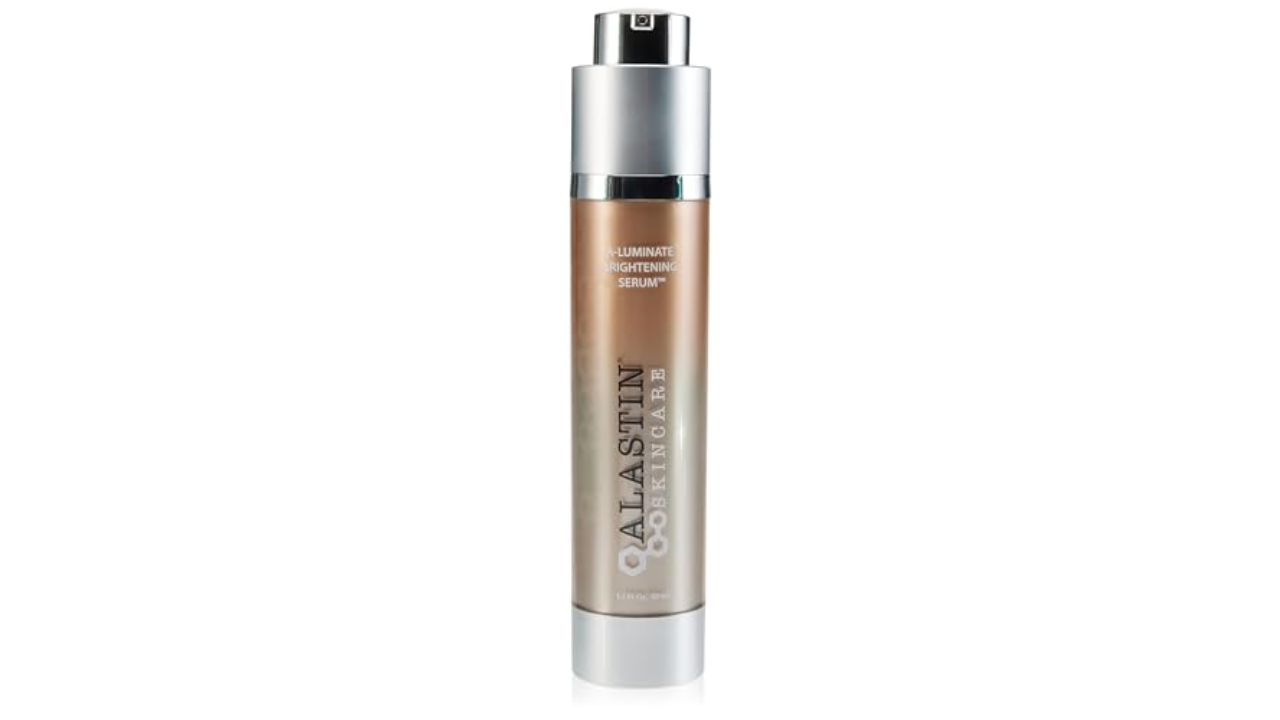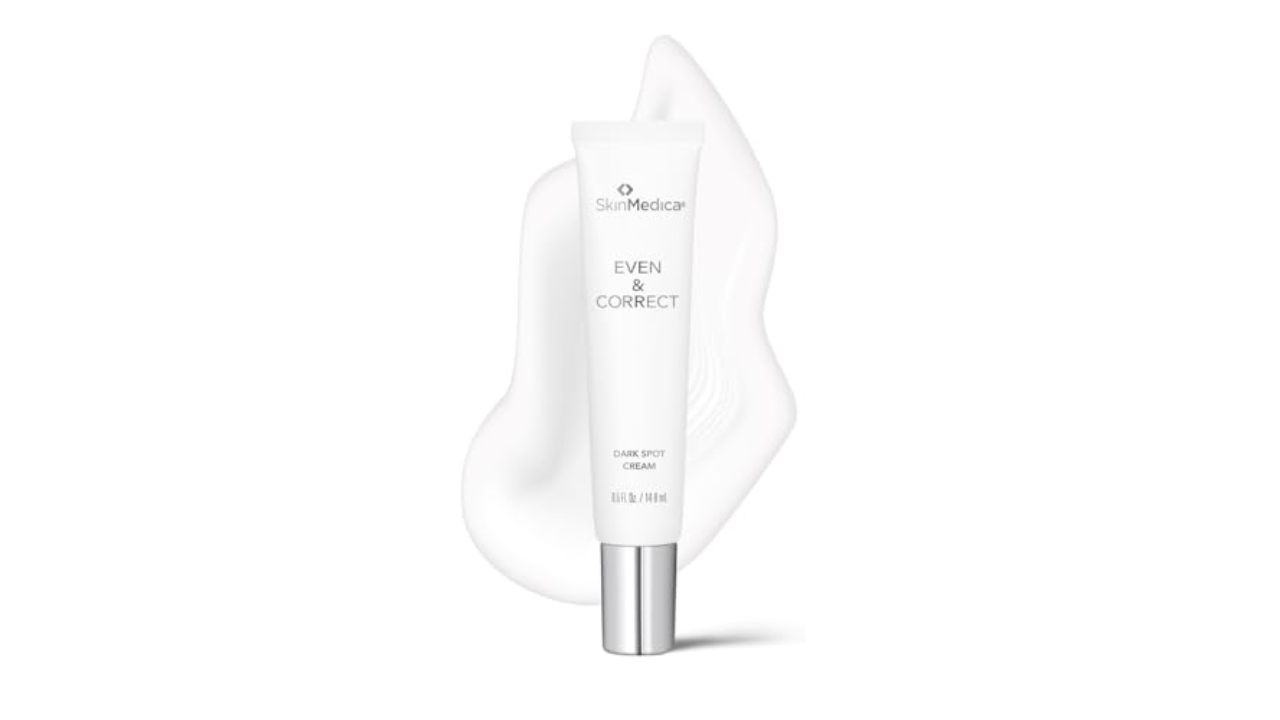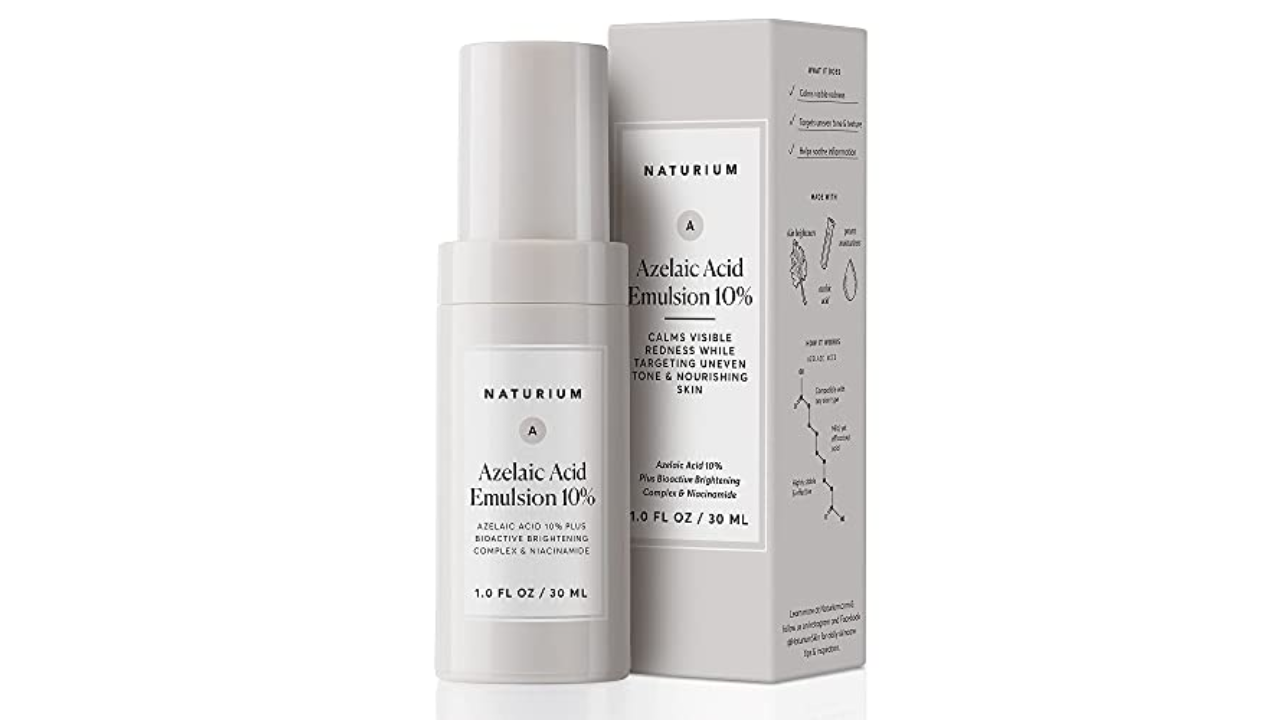We independently evaluate the products we review. When you buy via links on our site, we may receive compensation. Read more about how we vet products and deals.
The best dark spot corrector of 2025 for unwanted hyperpigmentation, according to dermatologists
Freckles over 40? No, those are age spots — Alastin's dark spot corrector will erase sun damage from spring break in your 20s.
Freckles, sun spots, melasma, post-inflammatory scarring — hyperpigmentation comes in all sorts of forms and occurs when parts of the skin become darker than the surrounding areas. And while recent advancements in technology make skin laser treatments amazingly effective (and often fast and painless) for removing unwanted hyperpigmentation, before investing in a pricey professional service, you may want to first try using the best dark spot corrector at home.
Before we get into treatments for dark spots, it’s important to know what causes them. Hyperpigmentation can affect anyone regardless of skin tone or ethnicity and can stem from acne scarring, hormonal shifts (such as pregnancy or menopause), medication, skin trauma, and, of course, sun exposure. (Sunlight prompts melanin production in the skin as a defense mechanism, often leading to uneven pigmentation.)
When I was a kid, I played outside a lot (without sunscreen) and had freckles. As I got older, I assumed my cute childhood freckles just got a little bigger. That is until a dermatologist kept repeating the words “sun damage” to me as a sort of shame mantra. I’ve never skipped a day of SPF since. Now, treating these sunspots is at the top of my list of skin concerns, so I'm regularly using one of the best exfoliators for face to help even my skin tone overall. I've also sought advice from experts (who won’t shame me), like Dr. Omer Ibrahim, a dermatologist at Chicago Cosmetic Surgery and Dermatology on how to deal with these brown blemishes.
"[Dark spot correctors] contain ingredients that inhibit or reduce melanin production or ingredients that improve cell turnover,” Ibrahim explains. He says products containing ingredients like retinol, resorcinol, AHAs (glycolic acid, lactic acid, etc.), bakuchiol, and mandelic acid increase cell turnover which can help restore it to its natural state. Below, Ibrahim offers his expert recommendations for the best dark spot correctors on the market today.
Best dark spot corrector overall
Alastin Skincare A-Luminate Face Serum
Best mid-range dark spot corrector
SkinMedica Even & Correct Dark Spot Cream
Best drugstore dark spot corrector
Naturium Azelaic Acid Emulsion 10%
Table of contents
Update, Jan. 3, 2025: We checked all product prices and availability. Our number one pick for best dark spot corrector remains unchanged.
The best dark spot corrector overall
Formulation: Lotion | Size: 1.7 oz. | Skin type: All | Key ingredients: PATH-3 Technology complex, tranexamic acid, squalane, niacinamide
The factors Ibrahim relied on for his recommendations, like Alastin’s A-luminate Brightening Serum, really came down to the formula and efficacy of each product. “These contain ingredients proven to help reduce dark spots and show great results,” says Ibrahim. A-luminate features tranexamic acid, which inhibits tyrosinase (the enzyme that kicks off the production of melanin), along with niacinamide, squalane, and a proprietary PATH-3 Technology complex, which includes peptides and other ingredients that target dark spots. The serum is also free from both hydroquinone and retinol, which is great news to anyone who is sensitive to or unable to use them.
I was excited to see Alastin A-luminate on the list as I myself have gotten great results from the product. I tested it for two months, using it every day. It drastically lightened the sun spots I had on the left side of my face (from driving) and left my complexion looking brighter and healthier overall. There is no stinging sensation whatsoever, especially compared to other products I use with AHAs. It was easy to incorporate it into my daily routine.
It's not cheap, but the payoff is impressive. I consider A-luminate to be my own dark spot holy grail serum.
- Non-irritating
- Non-hydroquinone and non-retinol
- Sleek, leak-free packaging
- Results in 4-8 weeks
- Pricey
- Fragrance-free but chemical-like scent
Other top dark spot correctors we recommend for 2025
Formulation: Lotion | Size: .5 ml | Skin type: All | Key ingredients: LTN complex, glycolic acid, retinol, kojic acid derivative, vitamin C
Skinmedica churns out product after product for those of us with aging concerns, so it's not surprising that Ibrahim likes the brand's Even & Correct Dark Spot Cream for dark spots. It has a number of ingredients on his "look-for" list, such as AHAs, retinol, vitamin C and a derivative of kojic acid, which comes from fungi and inhibits the production of tyrosinase.
Fans of Skinmedica's Even & Correct Dark Spot Cream boast about its ability to lighten dark spots rather quickly while making their skin appear brighter and clearer. Because of the glycolic acid and retinol, people with sensitive skin should take their time using the product (go low and slow!). It also makes skin even more sensitive to the sun, so don't forget the SPF, otherwise you may have even more dark spots to treat!
- TSA-friendly so good for travel
- Reviewers saw visible results as early as 2 weeks
- Clinically proven to reduce dark spots
- Pricey for amount of product
- Makes skin sun-sensitive
- Slight scent that some users find offensive
Formulation: Lotion | Size: 1 oz. | Skin type: All | Key ingredients: Azelaic acid, bioactive brightening complex, bio-retinol and niacinamide
This serum from Naturium is definitely a multipurpose product. It focuses on calming the skin and improving tone and texture — it’s not even marketed for or even named as a corrector for dark spots, but it still does the job, and does it well. Its main ingredient is azelaic acid, another key ingredient on Ibrahim’s list. Azelaic acid is known for being effective against melasma, eczema, and acne, which makes this product a great pick for someone who is acne-prone and constantly dealing with acne scars. You can hit two (acne) birds with one stone!
It has almost 600 five-star reviews on Amazon, with fans boasting about its life-changing ability to clear rosacea, fade melasma and stop hormonal acne dead in its tracks. At about $22, this is a great buy, especially if you’re still dealing with any "ghosts of breakouts past" (stubborn hyperpigmentation from old zits).
- Paraben-free and gluten-free
- Vegan and cruelty-free
- Made in the USA
- Meant to be fragrance-free but some reviewers complain about the clinical-seeming scent
- Some users reported irritation
Dark spot corrector FAQs
What is a dark spot corrector?
“A dark spot corrector is a product that works to minimize hyperpigmentation or dark discoloration on the skin, whether it’s caused by UV exposure, melasma, or post-inflammatory hyperpigmentation,” explains Ibrahim. Typically, dark spot correctors come in the form of a serum or solution applied after washing your face. For tackling dark spots and inhibiting melanin production, the ingredients Dr. Ibrahim says to look for in a product include vitamin C, azelaic acid, niacinamide, tranexamic acid, kojic acid, arbutin, licorice extract and hydroquinone. (It’s important to note that there are risks with hydroquinone, especially associated with long-term use.)
Can a dark spot corrector help with any other skin concerns?
Since there are many different types of ingredients in dark spot correctors that are seen in other types of products, it’s safe to say that they might be able to help with other issues. (Hooray for multipurpose products!) “Many dark-spot-correcting ingredients also do help with other skin concerns,” says Ibrahim. “Vitamin C, for example, is a fantastic antioxidant that helps protect the skin from oxidative damage. Retinol and bakuchiol, while increasing cell turnover, also boost collagen production, leading to skin that’s more plump with less visible fine lines, wrinkles and skin texture. AHAs help exfoliate the skin for brighter, smoother looking skin.” He adds that azelaic acid is fantastic for those with rosacea and irritated skin as it has been shown to help reduce redness.
How often should you use a dark spot corrector?
I was able to use the Alastin A-luminate Brightening Serum every single day without a problem, but as Ibrahim points out, your tolerance level depends on your skin type and on the product. “Products with ingredients promoting cell turnover can be irritating with overuse. For these products, for those with normal skin, start by using it two to three times weekly, and build up to daily use,” he says. “For those with very sensitive skin, consider using it one to two times weekly.” Ibrahim also points out that vitamin C can be irritating to the skin, depending on the type of vitamin C used and the formulation. “Ingredients like tranexamic acid, kojic acid, niacinamide and azelaic acid may be used daily and, depending on the product, twice a day,” he adds. Overall, it’s always best to go low and slow with any new skin care product.
Can anyone use a dark spot corrector?
For the most part, over-the-counter, non-prescription dark spot correctors are safe for all skin tones, says Ibrahim. However, some ingredients can — and should — only be used while under a doctor's care. “Products containing hydroquinone should only be used under the guidance of a board-certified dermatologist,” he says.
Another important note from Ibrahim: “Skin checks with board-certified dermatologists are very important as sometimes dark spots could be due to skin cancer. To untrained eyes, it may look like another pesky dark spot, but to a dermatologist, it may be a spot that warrants attention.”
Meet our expert
Omer Ibrahim, MD, FAAD, board-certified dermatologist
We received complimentary samples of some products and purchased others ourselves, but we reviewed all products using the same objective criteria.








